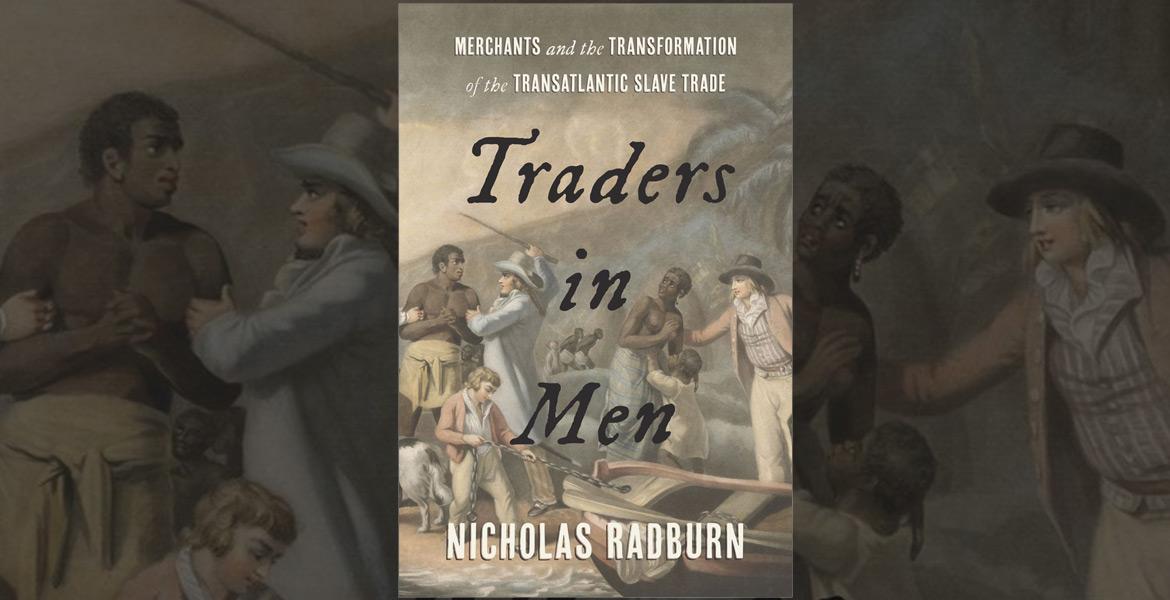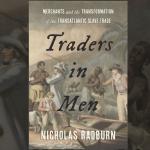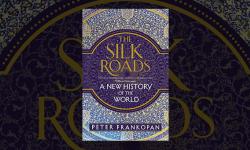Nicholas Radburn, Traders in Men
Nicholas Radburn's Traders in Men provides a ground-breaking analysis of Britain's involvement in the slave trade between the seventeenth and nineteenth centuries from an entirely new perspective: the traders themselves. Encompassing activities on both sides of the Atlantic, in Africa and the Americas, as well as on the Middle Passage, he takes the reader on a detailed and sometimes harrowing journey, considering aspects and sources of information that have previously been overlooked.
It is perhaps surprising that there has been such a gap in knowledge about the trade before now: given the current political emphasis on addressing the wrongs of the past, one might have expected well-informed, relevant books to be flooding the market. Then again, perhaps not. Part of the problem lies within academic circles, with raging and sometimes personal debates about the nature of the study itself. Those who use quantitative analyses, based on enormous datasets, run the risk of accusations of dehumanizing or sanitizing what everyone can agree was an awful business. But those who rely purely on qualitative data and personal accounts can be accused of being blinkered, too narrow in focus to be able to draw any conclusions. Radburn, however, has discovered a workable, and convincing, compromise by combining both the qualitative and quantitative into an overarching whole.
The work involved in this, even for a monograph, is astounding. Traders in Men combs through every available data source, from diaries, logs and newspaper advertisements, through paintings and propagandaBiased and misleading information used to promote a political cause or point of view., to international databases that are eye-watering in scale. This account of the British slave trade is therefore so exceptionally thorough that it could be described as a magnum opus - if Radburn weren't quite so young. All those previously ignored aspects - African merchants, Guinea factors, the processes of acquisition, transportation and sale that changed so much over time - are shown to be essential elements in growing and defining the trade. In incorporating so many sources and so many stages, Radburn has altered the academic study of the slave trade for good.
Despite all this, Traders in Men is not overwhelming. The book is a sensible length and well-written, with the drier details saved for a number of appendices. There might, however, have been room for more comparative study of practices between the European nations. Although Radburn provides a justification for focusing solely on British involvement, it does leave the reader wanting. As he states, the Portuguese, for example, started far earlier and enslaved far more people than the British. Yes, the argument that Portugal actually had less of an impact is accepted, but the British trade did not grow in isolation. Nor did it 'triumph' in isolation. The European context was an essential element to all British forays in trade - from slaving to tea to opium. Competition with enemies and so-called 'friends' pushed the empire and the economy to expand, while wars - of which there were many - allowed territories and trade routes to change hands, frequently impacting the trade in people. Although there is a risk of overcomplicating the book by following these tangents, it might well have been a risk worth taking.
Of course, balance in any book is important, and balance when discussing such a controversial and laden subject can be particularly difficult. But as with that compromise between sources, Radburn has managed to tread a careful middle path through the minefield that the legacy of the slave trade has left. The pedantic might potentially complain about the use of emotive language in a monograph, albeit one with popular appeal, and it can often be better to let the history speak for itself rather than trumpet today's issues too loudly. Yet these points are minor and easily ignored, if noticed at all. Radburn handles his topic sensitively and wisely, with an attempt to understand his subjects - the traders in men who selfishly chased profit above honour, compassion, humanity - as products of their own time, rather than ours. Traders in Men is thus eye-opening and thought-provoking; it is a brilliant synthesis of the available information in all its forms; and it is a firm reminder about the lengths the greedy will go to in the pursuit of wealth.
- Log in to post comments







